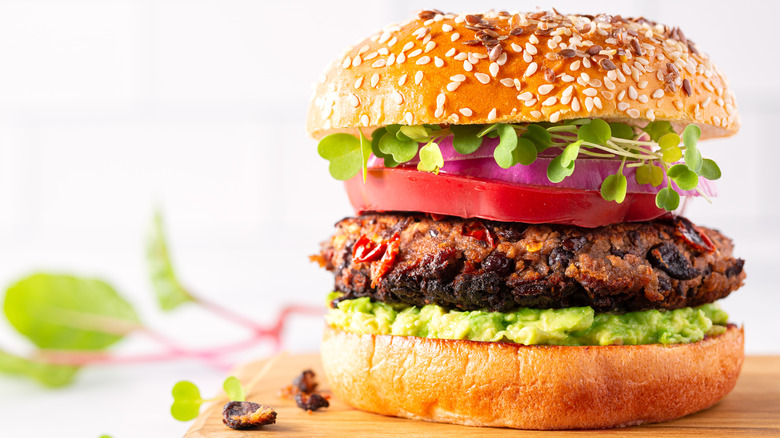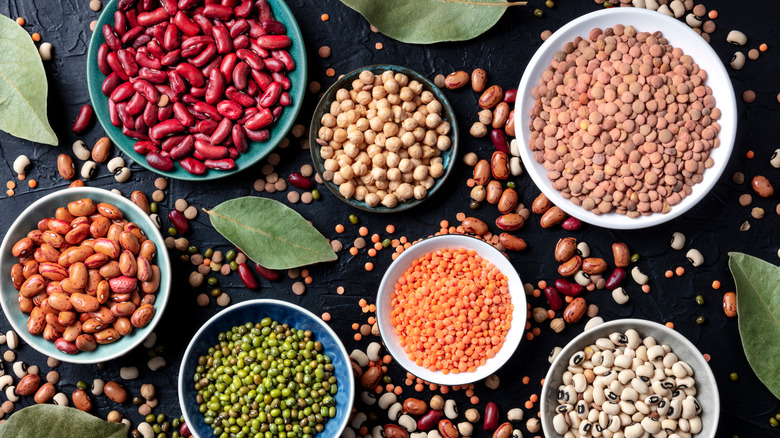The Versatile Ingredient Substitution You Can Use For Meat
Beef and chicken can be delicious. They can provide us with enormous nutritional benefits as well as much-needed protein. But consuming meat also has environmental and economic downsides. Luckily, there are many great vegetarian meat substitutes available for your next vegetarian or vegan meal, but let's focus on just one versatile option: beans. Even if you're not ready to swap beef and chicken out completely, substituting beans for your meat will make a noticeable difference in your health and the health of the planet.
Not only are black bean burgers satisfying and tasty, eating them instead of beef won't rob you of your daily protein needs. Just a ½ cup of cooked black beans contains the same amount of protein as 1 ounce of meat, or about 7 grams. Unlike beef, black beans are high in fiber and antioxidants and help lower LDL, or "bad" cholesterol. Beyond that, there are many more bean-y meat substitute options available, including kidney, garbanzo, navy, and cannellini. Each comes with its own flavor and texture profile, making them highly versatile meat replacements.
Substituting beans for meat
There are many creative ways to add beans to your diet that address that beef craving — our three-bean chili recipe being a great place to start. But there's no need to stop there when using beans as a meat substitute. Garbanzo beans (otherwise known as chickpeas) are mildly flavored and make a great substitute for chicken or turkey in burgers and stews. Pinto beans cooked up in one pot with some Mexican ingredients and paired with a zingy pineapple salsa make beautiful crispy baked tacos.
Beans are not only wonderfully inexpensive, and even cheaper if you buy them dried and soak them yourself – they're more broadly palatable than other meat substitutes like mushrooms, cauliflower, or soy products. They can be boiled, mashed, or crisp-baked and fried to go with any type of cuisine you can imagine. The old adage "beans, beans, good for your heart" is really true, because the more you eat the more you'll help reduce carbon emissions. Wait ... what did you think we were going to say?

